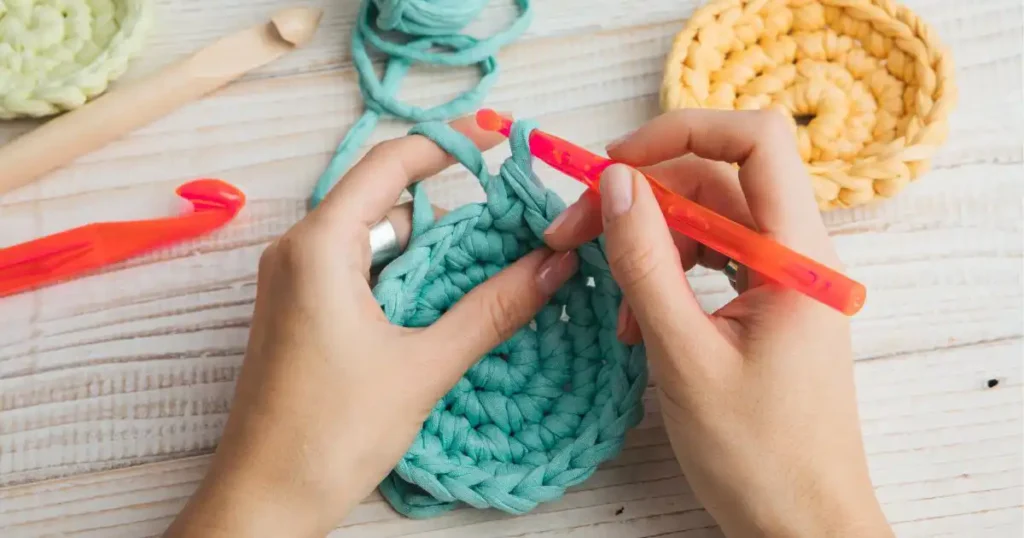19 Best Hobbies for Introverts to Recharge in Solitude
Hobbies for Introverts
Introverts enjoy hobbies that are calm, solo, and recharging. Try reading, journaling, sketching, gardening, coding, photography, puzzles, knitting, or learning a language. These activities reduce social pressure, build focus, and support creativity, making them ideal ways to relax and grow at your own pace.

Quiet pursuits are a preference and a way of life for many people who identify as introverted. But loneliness does not equate to boredom or loneliness. Finding interests that fit your personality is one of the best ways to uncover the rich inner life that introverts frequently possess.
This list of hobbies for introverts will help you refuel as loners and support your personal development and brain function.
What is an introvert?
Like me, an introvert finds energy and peace in solitude rather than in social situations. You have a profound emotional connection and favor peaceful, introspective times over busy, boisterous ones. You may appear quiet with other people, but that’s because you value genuine relationships.
You need some alone time to refuel and think things through. Not because you don’t like people, but because the outside world overstimulates you. Recognize that when you observe them withdrawing, they are simply taking a moment to relax and find inner peace.
List of 19 Best Hobbies For Introverts
Here is my curated list of the best hobbies for introverts;
1. Listening to Podcasts
For those who need time to think and contemplate, podcasts might be a great way to pass the time. Picture yourself in a comfortable environment, possibly enjoying a cup of tea or coffee and listening to podcasts.
You can read stories, pick up new skills, or hear life lessons from others. It’s similar to discussing without having to respond. You have the option to pause, skip, or rewind. For introverts like you, it’s the ideal pastime because you have complete control over how you participate.
2. Journaling
Journal writing can be compared to having a private conversation with oneself. There, you can voice your opinions and feelings without fear. Avoid using flowery language; be honest and let your feelings speak for themselves.
Writing about your experiences helps you better comprehend them, especially if you’re an introvert. With just a pen and paper, you may use this simple yet powerful technique to make the most of some alone time and reflect on your day.
3. Learning a new Language
Especially if you’re a lone individual, learning a new language is a rewarding and delightful hobby. When you’re ready, you can speak with others, take your time, and work at your own pace.
For those looking to turn their language skills into a career, you can find remote Japanese language jobs on Jooble and work from anywhere while applying your knowledge in real-world settings.
You’re by yourself as the new words slowly combine to create a secret language that only you can decipher. On this serene adventure, you can explore an entirely new cosmos from the comfort of your favorite location at home.
4. knitting
Knitting and crocheting are hobbies that complement a solitary lifestyle. Working on these peaceful, quiet projects by yourself allows you more time to relax and concentrate on a straightforward but imaginative task. Enjoy the tranquility of your home while creating lovely items, such as blankets, caps, and scarves, with knitting or crocheting.
You can use your hands creatively and in a calming way with these repeated actions. You feel as though you’ve accomplished something because you can see how far you’ve come along the route. Knitting and crocheting can be great hobbies for introverts who prefer quiet time, music, or audiobooks.
5. Solving a puzzle
Do you enjoy spending time alone? Solving puzzles is a fantastic hobby for introverts like you. It’s just you and the issue, so no need to talk to anyone. Sit down and enjoy a stimulating game with a jigsaw puzzle, Sudoku puzzle, or riddle.
One of the greatest activities for introverts that doesn’t require the taxing social contacts that other pursuits may be is solving problems. Whether it’s a strategic game, a difficult crossword puzzle, or a complicated mathematical issue, it’s just you and the task. Every puzzle is a universe in and of itself, just waiting for you to discover its mysteries.
Turning off all outside distractions is necessary to maintain concentration when working on a topic. All distractions must be turned off as you dig into a problem.
The only voice you hear in this type of mindfulness is your inner monologue, which leads you through deduction, reasoning, and problem-solving methods. Recharging your mind and feeling incredibly satisfied are two benefits of this intense concentration.
6. Scrapbooking
Do you know how pleasant it is to be by yourself sometimes? Scrapbooking can be an excellent hobby for that reason. The primary goal is to create a one-of-a-kind book featuring your most cherished memories. You can use brief remarks, images, or even tickets from a place you’ve visited.
Scrapbooking involves little more than you and your memories. You are not obligated to talk to anyone else if you choose not to. You have complete control over the appearance of your scrapbook. Using objects and images instead of words is comparable to narrating a story.

7. Creative writing
For introverts, writing creatively can be a rewarding hobby. Writing about your day, creating fictional worlds, or reflecting on your dreams all boil down to putting your thoughts and tales on paper.
Unless you choose to share your work, writing is a way to express your creativity without connecting with others. In this serene environment, you may lose track of time as your ideas come to life and become fully creative.
8. Connect with Nature
Hiking is a great way for introverts to socialize, especially if you prefer to be alone. In a nearby park or woodland, picture yourself walking along a serene route and taking in the view.
It is affordable, easy, and calming. The birds, the breeze, and the changing sky can all be heard without having to deal with people or small talk. Beginners benefit greatly from a 20–30 minute stroll because it offers a welcome mental distraction from indoor activities.
9. Baking
If you enjoy spending time alone, baking can be the perfect hobby for you. It allows you to create anything from scratch, which may be rewarding. You can measure your ingredients, follow the instructions, and observe how easily the ingredients combine to make a delicious dish.
There is no need for a team or group, so that you can work on it in solitude, at your own pace, and in your own space. A rewarding pastime for your job is the smell of freshly baked products. Baking is a reassuring and happy activity, whether you share your baked goods or eat them yourself.
10. Doodling or Sketching
You can express yourself creatively by drawing or doodling. Both are cost-effective and adaptable. You can select the instruments you prefer, be it markers, colored pencils, crayons, or even a basic pen. There is no need to produce a masterpiece; you can let your hand do the work and observe what patterns and shapes appear.
It all comes down to your intuition. You can draw while watching TV, listening to music, or even taking a rest. You can unwind and let your mind wander. Take out your paper and pencil and draw whatever comes to mind. Take pleasure in the process and feel successful as you go!
11. Reading
Reading is an enlightening and individualized pastime for introverts. It provides access to other worlds and perspectives. You can travel beyond the present when you read, whether it’s a historical biography, a gripping mystery, or science fiction about far-off planets.
One of the best ways for introverts to relax and increase their vocabulary is to read. It’s also a mental exercise. It shares similar relaxing benefits to cognitive training.
What about audiobooks? For introverts who wish to keep their hands occupied or their eyes relaxed, these are great pastimes. Put on your headphones, hit play, and watch the stories come to life. It’s a fantastic method for reading texts in a contemporary, practical way.
12. Pottery
Pottery is a creative and practical hobby that offers a soothing experience. Although it can be expensive at first (50 pounds of stoneware clay costs about $26.15) and kiln rentals vary, it’s a gratifying craft.
To get started, each session lasts at least an hour and includes basic materials such as clay, glaze, and possibly a pottery wheel. Making something distinct, tangible, and useful with pottery takes time and practice. Exploring creativity in this way is a calming and rewarding experience for introverts.
13. Gardening
Growing plants is a calming activity that allows you to focus on your thoughts. You and nature are alone; you don’t need to speak to anyone.
Seeing your seeds sprout into lovely flowers or mouthwatering foods is also satisfying. Although it’s a simple joy, it holds significant meaning for someone who values peace. The best part, too? Everything may be done at your speed, in your own time, and without pressure. You can be who you are with this interest.
6. Social Hobbies for Introverts
Social hobbies for introverts to establish social connections with others without feeling overwhelmed. Here are some social hobbies for introverts that might suit you:
1. Book Clubs. A book club could be a fantastic opportunity to meet new people if you share my passion for reading. There will be a discussion of various perspectives on the book, but you are not obligated to discuss anything more than you feel comfortable discussing.
2. Photography. Through your camera’s lens, photography allows you to establish connections with others. You can go on photo walks and exchange advice by joining clubs or groups dedicated to photography.
3. Hiking in groups. For those who love the great outdoors, hiking together can be a fulfilling social activity. It lets you mingle and enjoy the peace of the outdoors.
4. Yoga courses. In a calm environment, yoga classes allow you to focus on your practice while interacting with others.
5. Language classes. Learning a language in a group setting can be entertaining and engaging. In this setting, social interaction is optional and non-intrusive. Meeting new individuals and enhancing communication skills can be accomplished by supporting one another’s learning while engaging in casual chats.
6. Volunteering. Connecting with people who share your beliefs might be facilitated by supporting a cause you are enthusiastic about. It’s a deliberate way to interact with people and improve your community.
Finding a hobby that allows you to be social on your own terms without feeling obligated to engage with people all the time is crucial. Enjoy browsing through this list of introverted activities to find the one that suits you best!
Subscribe to our newsletter to get the latest articles!
FAQs about Hobbies for Introverts
What kinds of hobbies are good for introverts?
Introverts tend to thrive with hobbies that allow for solitude or minimal social interaction, such as reading, journaling, indoor gardening, sketching, or nature walks.
Such hobbies replenish energy rather than drain it.
Are there hobbies for introverts that involve socialising, but gently?
Yes—some hobbies for introverts combine solo time with optional connection: small book clubs, photography meet-ups, board games with friends, or online hobby groups. These allow interaction on your own terms.
Are there cost-effective hobbies for introverts?
Definitely, many hobbies for introverts cost little to start: reading from the library, sketching with basic supplies, journaling, and nature walks. It’s more about mood than money.
Hobbies for introverts to make friends?
Try book clubs, board games, hiking groups, painting classes, language meetups, volunteering, or coding clubs. These hobbies create small, structured conversations, so you can connect without pressure. Go regularly, talk to one person at a time, and friendships will grow naturally.
Outdoor hobbies for introverts?
Try solo hiking, nature walks, birdwatching, fishing, photography, cycling, kayaking, gardening, stargazing, or geocaching. These hobbies offer quiet time outdoors, gentle movement, and space to recharge. You can go at your own pace while enjoying fresh air, scenery, and calm.
Hobbies for introverts with anxiety and depression?
Try calm hobbies: reading, journaling, coloring, puzzles, gentle yoga, short walks, baking, simple crafts, knitting, or listening to podcasts. Start small, choose quiet activities, and set easy goals. Creative hobbies can reduce stress, improve mood, and build confidence.
What are the 4 types of introverts?
There are four introvert types: social (enjoys small groups), thinking (reflective, imaginative), anxious (self-conscious in social settings), and restrained (slow to warm up). Many people are a mix, shifting by situation, mood, and confidence over time.






